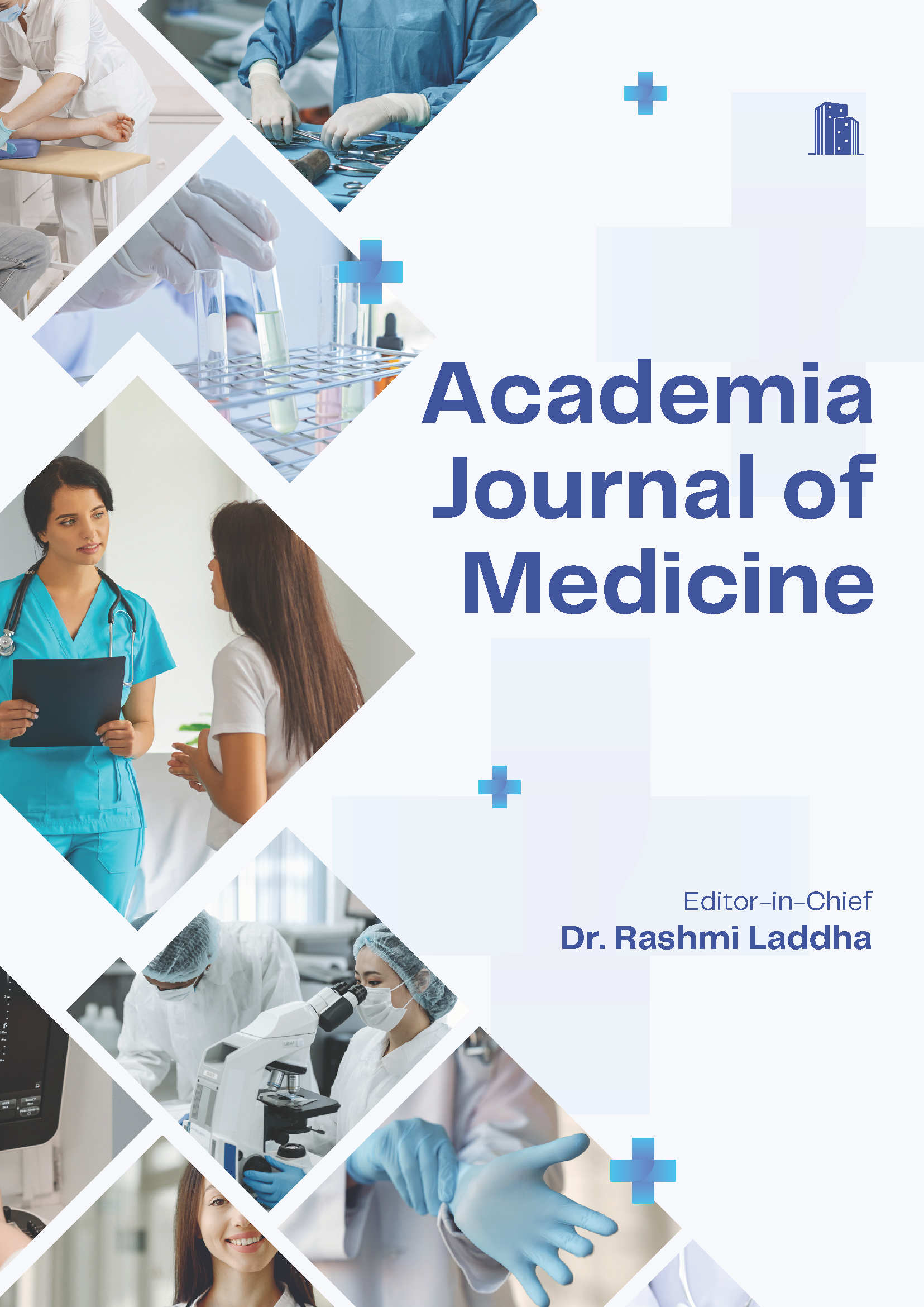A Study of Clinical and Laboratory Profile of Dengue Fever in a Tertiary Care Teaching Hospital
DOI:
https://doi.org/10.48165/j24sx730Keywords:
NS1 antigen, Flavivirus, ThrombocytopeniaAbstract
Background: The incidence of Dengue has grown dramatically around the world in recent decades. Year after year, the prevalence of the disease is on a rise. This study is designed to study the clinical and laboratory parameters of Dengue patients in a tertiary care teaching hospital. Subjects and Methods: Prospective observational study was undertaken in a tertiary care teaching hospital. This study was carried out for a period of two years between Jan 2017 to December 2018.Seventy-two patients were studied and analyzed. All patients with positive NS1 antigen and positive ELISA test were included in the study. Clinical, hematological and biochemical parameters were noted.Results: Of the 72 patients, majority were females (52.8 %). Fever was the most common symptom followed by other symptoms like head ache, myalgias etc. Conclusion: Dengue is an important cause of mortality and morbidity in our country. Early diagnosis and prompt management can have a positive effect on the outcome of the disease. Proper monitoring of the clinical and biochemical parameters and necessary intervention can bring down the mortality rates associated with this disease.
References
1. World Health Organization. Dengue and Severe Dengue. Fact sheets, 2013.Available at: http://www.who.int/mediacentre/factsheets/fs117/ en /. Accessed 26 September 2013.
2. CDC. Imported Dengue--United States, 1997 and 1998. Morb Mortal Wkly Rep. 2000; 49:248-5
3. World Health Organization. Dengue: Guidelines for Diagnosis, Treatment, Prevention and Control, 2009. Available at: whqlibdoc.who.int/publications/2009/97892415478 71_eng.pdf.
4. Srikiathacorn A, Gibbons RV, Green S, Libraty DH, Thomos SJ, et al. Dengue hemorrhagic fever: The sensitivity and specificity of the World Health Organization definition for identification of severe cases of Dengue in Thailand, 1994-2005.Clin Infect Dis. 2010;50:1135-1143
5. Mohan D Kashinkunti, Shiddappa, Dhananjaya M. A Study of Clinical profile of Dengue fever in tertiary care teaching hospital. Sch. J. App. Med. Sci., 2013;1:208-282.
6. Rachel Daniel, Rajamohanan and Aby Zachariah Philip. A Study of Clinical Profile of Dengue Fever in Kollam, Kerala, India. Dengue Bulletin. 2005; 29:197-202
7. Soundravally R, Sankar P, Bobby Z, Hoti SL. Oxidative stress in severe Dengue viral infection: association of thrombocytopenia with lipid peroxidation. Platelets. 2008; 19:447-54
8. Kumar R, Tripathi S, Tambe JJ, Arora V, Srivastava A, Nag VL. Dengue encephalopathy in children in Northern India: clinical features and comparison with non-Dengue. J Neurol Sci. 2008; 269:41-8.
9. Kumar R, Tripathi S, Tambe JJ, Arora V, Nag VL. Dengue encephalopathy in children in Nothern India: Clinical features and comparison with non Dengue. J NeurolSci 2008; 269:41-8.
10. Jhamb R, Kashyap B, Ranga GS, Kumar A. Dengue fever presenting as acute liver failure - a case report. Asian Pac J Trop Med. 2011; 4:323-4

